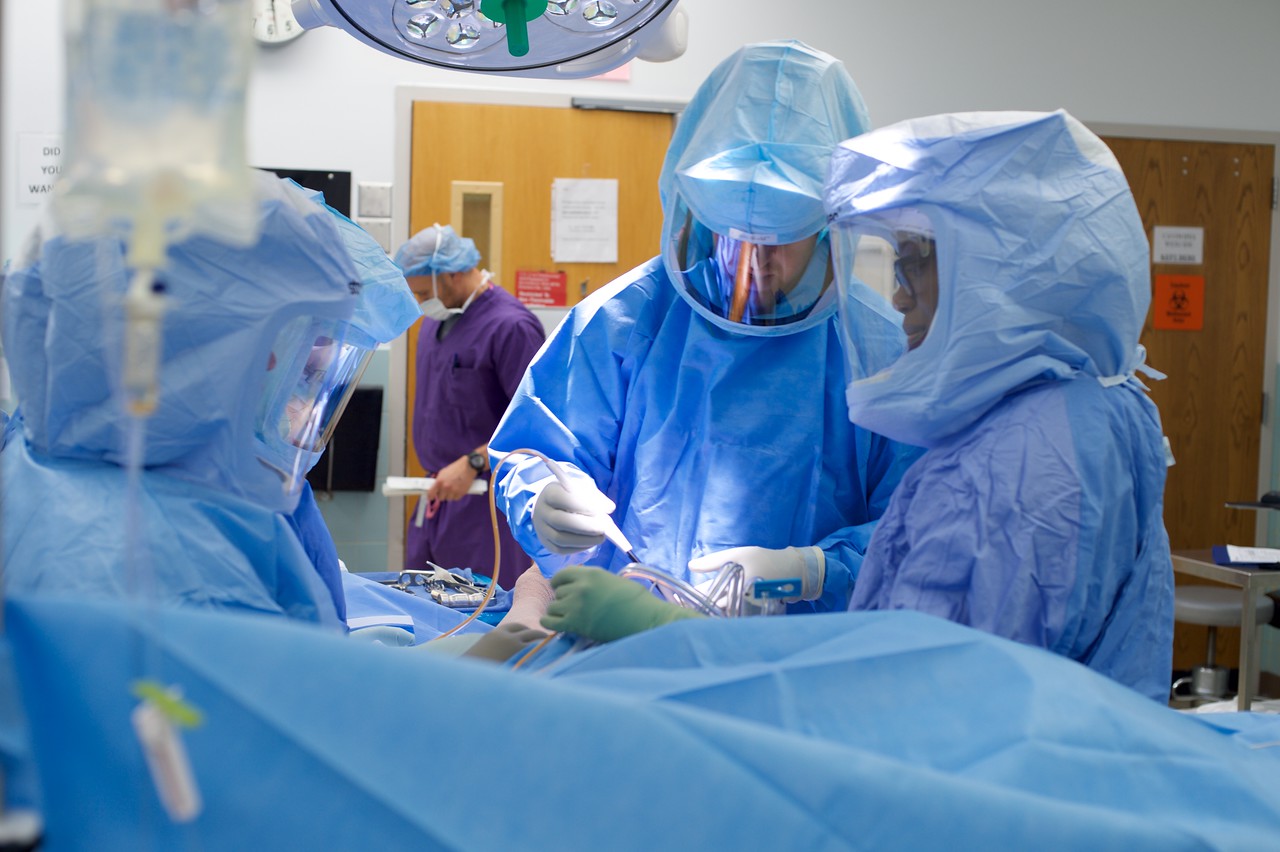
Knee replacement surgery at Shelbourne Knee Center relieves pain and helps you function better by replacing the damaged parts of the knee with implants. It is also called total knee arthroplasty.
During knee replacement, the orthopedic surgeon cuts away the damaged bone and cartilage from your thighbone, shinbone and sometimes the kneecap. He replaces them with parts made of metal and plastic. These are the implants. The implants are also called an artificial knee. The surgeon operates through a cut (incision) in your knee of about 4 to 10 inches.
A Process that Minimizes Pain and Swelling
The knee replacement process at Shelbourne Knee Center minimizes pain and swelling after surgery and helps you heal faster. The process includes having you:
- Use a Continuous Passive Motion machine that keeps the knee elevated and continuously moving the knee from full extension to small degrees of flexion.
- Wear a compression stocking.
- Use a Cyro-Cuff, to provide cold and compression. K. Donald Shelbourne, MD, orthopedic surgeon, helped to invent the Cyro-Cuff.
- Lay down with the leg elevated for the first week after surgery.
- Do physical therapy after surgery that focuses on restoring your range of motion before strengthening your knee.
This process, and our use of anti-inflammatory medications, minimizes the need for narcotic pain medications. In fact, our patients recover from knee replacement surgery with less pain and take 81% less narcotic pain medication on the first day after surgery compared with traditional pain management programs.
Physical therapy after knee replacement surgery helps you improve your range of motion (ability to straighten and bend your knee) and knee strength so you can get back to living.
Your Anesthesia and Hospital Stay
We use general anesthesia for knee replacement surgery. General anesthesia puts you to sleep and prevents you from feeling pain during surgery. It’s usually a combination of drugs given through a vein (intravenous drugs) and inhaled gasses (anesthetics).
Most of our patients spend 2 nights in the hospital. Some can go home after one night and a few stay 3 or more nights.
Revision Knee Replacement Surgery
Sometimes revision knee replacement surgery is needed after a knee replacement.
Reasons for Revision Knee Replacement Surgery
Reasons for revision surgery include:
- The first knee replacement wasn’t done right.
- The implant wore out (implants usually last about 15 to 20 years).
- Certain medical problems, such as infection or broken bone.
A More Complex Procedure
Revision knee replacement surgery is longer and more complex than the original surgery. It requires meticulous pre-op planning, the use of specialized tools, and patience during the procedure to preserve as much of the bone as possible.
Depending on the type of revision surgery, the orthopedic surgeon may need to remove and replace only one part of the implant or all parts.
Often, the surgeon will need to use specialized implants that fit deeper inside the bone and give you extra support. Sometimes the surgeon also needs to replace parts of the bone with a bone graft or metal pieces.
Many orthopedic surgeons who do knee replacements don't do revision surgery. Our team at Shelbourne Knee Center has extensive experience with revision knee replacement surgery.
